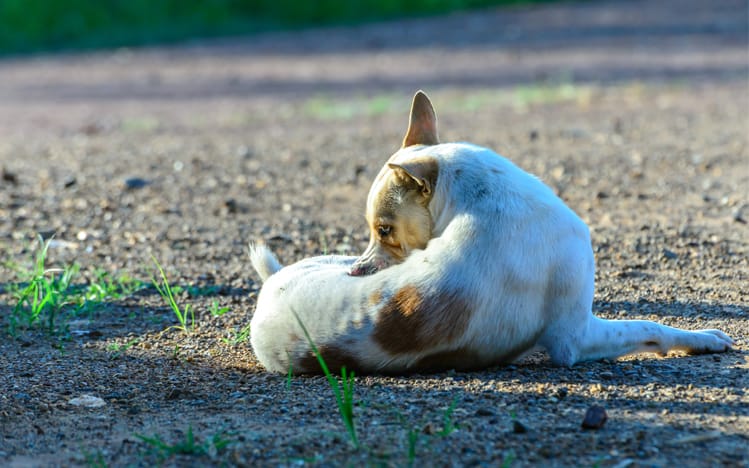
Do Fleas Die Off in the Winter?
Fleas can be a real pain for all pet owners. While the peak flea season is during the summer months, thanks to the warmer weather, they are still around throughout the autumn and winter. Additionally, central heating keeps our homes nice and warm during the colder months, and this can help ensure the flea population can survive and thrive… if we allow them into our homes.
Unfortunately, some pet owners treat their pets for fleas during the summer months and don’t worry about doing so in the winter. “It’s too cold for fleas,” they say… often just before they discover their pet is jumping with them. While a flea infestation may not be as severe in the winter, it can still cause huge issues for you and for your pet.
Regular flea treatments are vital all year round
To ensure your pet has the best chance of going unbothered by fleas, make sure you treat them regularly with a product recommended by your vet. You can get cheaper ones from regular stores, but these are not as good and you do get what you pay for in this instance.
Preventative treatment means that even if fleas do land on your pet, they’ll die shortly afterwards.
Wash pet bedding and anything else they come into contact with regularly
A hot wash will kill the fleas and any larvae that might be in there. Do this weekly to make sure you keep on top of the issue. If you are treating your pet regularly with a recommended flea treatment, you shouldn’t have a problem.
However, if your pet has brought fleas into your home and you are now infested with them (or a stray cat has brought them in), take steps to clean and vacuum every surface. And yes, that includes under your beds, because fleas can jump a great distance and they love dark places too. Regular action can help prevent an infestation, not to mention coping with one if you are unlucky.
And remember, if you cannot seem to get rid of them, call in the experts. This can be the best way to deal with a severe flea infestation if you are unlucky enough to have one. Don’t forget, this can happen in the winter too, especially if it is a mild one, or you haven’t treated your pet as often as you should.
